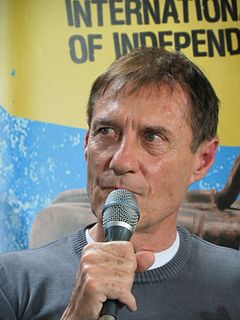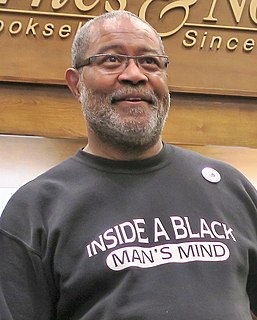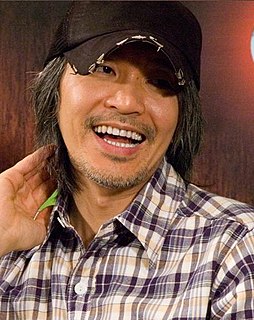A Quote by Ava DuVernay
One of the reasons why I created the podcast called the 'The Call-In' that we do through Array - because as a black artist, every time I sit down with mainstream media, I'm asked about issues of race, identity and culture. No one asked what they ask my white male counterparts, which is: 'Where do you like to put the camera?'
Related Quotes
I was on television a couple of years ago and the reporter asked me, "How does it feel being on mainstream media? It's not often poets get on mainstream media." I said, "Well I think you're the dominant media, the dominant culture, but you're not the mainstream media. The mainstream media is still the high culture of intellectuals: writers, readers, editors, librarians, professors, artists, art critics, poets, novelists, and people who think. They are the mainstream culture, even though you may be the dominant culture."
Another method (of depopulation) is disease infection through bio-weapons such as Ebola and AIDS, which are race targeting weapons. There is a weapon that can be put in a room where there are Black and White people, and it will kill only the Black and spare the White, because it is a genotype weapon that is designed for your genes, for your race, for your kind.
People keep telling me about the white race and the black race - and it really doesn't make sense. I played Miami, met a fellow two shades darker than me - and his name was Ginsberg! Took my place in two sit-in demonstrations - nobody knew the difference. The he tried for a third lunch counter and blew the whole bit ... asked for blintzes.
'Smart Funny and Black' is basically a live black pop culture game show that I created. We have a live band. We have two contestants that we call 'blacksperts.' They come on stage and compete in games that I've created that test their knowledge of black culture, black history, and the black experience.
I'm always thinking about what a black lady would think about what I'm doing, just because I feel like they have such great taste, mostly because as black women, we've spent a lot of time downloading what a white male narrative is, so in my head, I'm like, 'If a black woman likes it, if she responds to it, then it's probably pretty damn great.'
There are little Indian girls out there who look up to me, and I never want to belittle the honor of being an inspiration to them. But while I’m talking about why I’m so different, white male show runners get to talk about their art. I always get asked, ‘Where do you get your confidence?’ I think people are well meaning, but it’s pretty insulting. Because what it means to me is, ‘You, Mindy Kaling, have all the trappings of a very marginalized person. You’re not skinny, you’re not white, you’re a woman. Why on earth would you feel like you’re worth anything?’
When I was an actor in some movies a long time ago, I was so curious about all the camera movements - why is the camera placed here, and why does it move like this? And why the set and the background, the color? It's a lot of questions for me to ask, because I was so interested, not only in acting, but also the whole process of filmmaking.






































